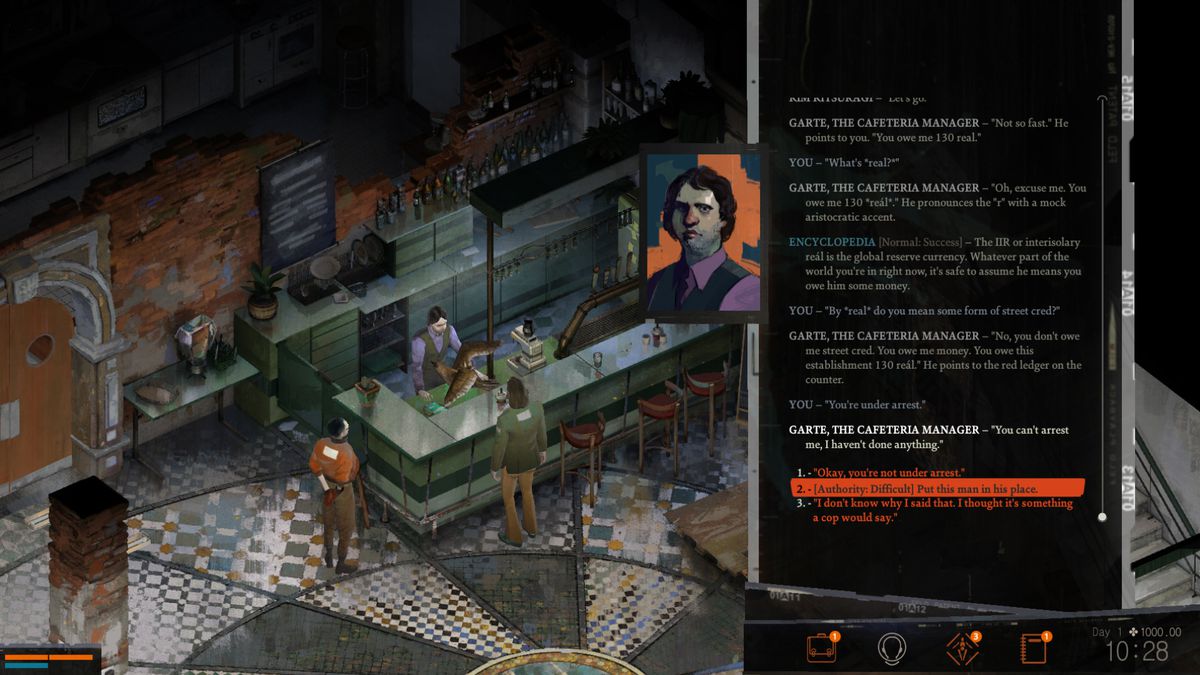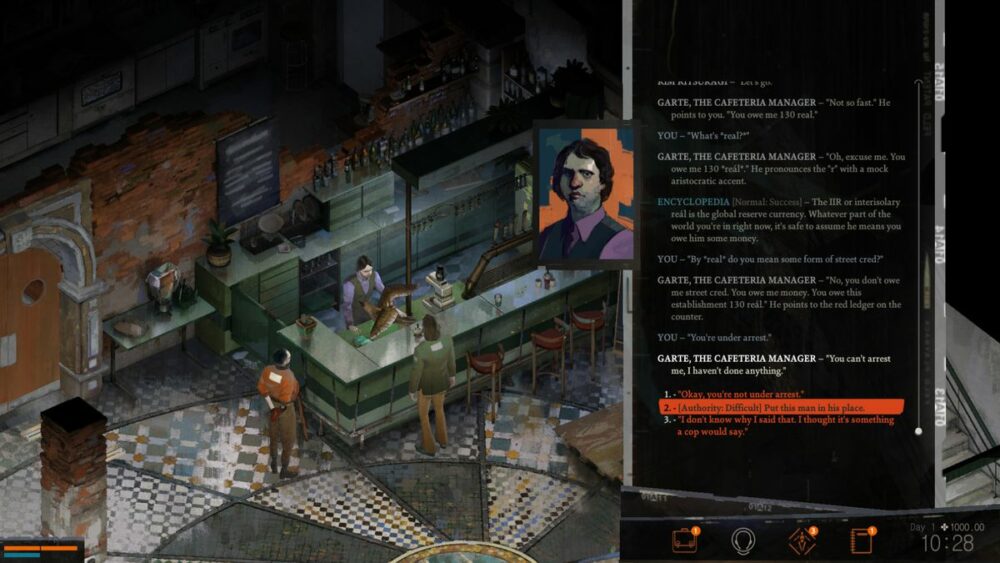My time playing Baldur’s Gate 3 looks like this: Move my player character toward a quest point, have Shadowheart cast Guidance, hit F5 to save, then try the conversation. Other times I’ll take Astarion to a door, hit F5, then have him pick the lock. Who knows if there will be danger within?
I’ve always been an ardent believer in save scumming — that is, saving right before major decision points and restarting after an unfavorable outcome — through playing role-playing games. And after poring over the game’s subreddit, it’s become clear to me how many other Baldur’s Gate 3 fans approach the game in the same way. It’s key for undoing a bad-luck die roll, correcting a passive perception check, or redoing a battle with a bad outcome. But I’ve long save scummed through RPGs of all stripes — immersion be damned — and I’m finally ready to not only admit it, but advocate for it.
I’ll own up to it. I’ve always been a sore loser in games of luck; I typically prefer management or strategy games where I have more control over what happens. In RPGs especially, I meticulously plan party composition to be able to tackle a range of challenges. It absolutely grinds my gears anytime I fail a die roll that my character has proficiency in — like if Karlach fails to turn a wheel because she fails a strength check, or if Shadowheart fails to persuade a follower of Shar, or if my Druid character (with great nature and animal handling stats) fails to win over an Owlbear looking for refuge.
A more level-headed player might gracefully accept that being skilled at something doesn’t mean you always get the desired outcome. Of course we all have “bad days” where things don’t go our way, despite our talents. But I have not reached that level of maturity — if I designed my character to be proficient, then they better achieve their one goal (especially Astarion, a walking lock pick). I do not play games for their fidelity to real life. I play games to cause strategic chaos, and I will simply save and try time and time again until I get that outcome.
This has been a staple of the way I’ve played RPGs. I save scummed my way through stealing armor off guards in Skyrim and hit F5 before just about every pickpocket attempt — because I’m a thief, goddamnit, and it’s important for me to steal without repercussions. I did this throughout Disco Elysium, too, because I didn’t want to have to deal with Cuno hating me, for example (though it’s debatable whether that truly panned out). In Disco, it proved particularly useful, given the game’s extensive wardrobe and each clothing item’s passive debuff. Sometimes passing a conceptualization roll came down to wearing the right lounge jacket. Saving allowed me to reload, put on the right clothing, then try again.

But my tendency to save scum in narrative-driven RPGs is also about feeding my curiosity. I F5-ed my way through Disco Elysium to see what direction the story headed in, and to figure out if I’d like that one better. I could have waited to do another playthrough, to see other story options — but save scumming gave me more information about the game’s characters, and more dirt about Revachol’s history. I ended up spending more time in the game’s world, intent on turning over every stone to reveal its many secrets.
Ironically, it also makes me more confident in the plays to which I fully commit. Just because I saved doesn’t mean I go back to old files if I nailed a play — nor does it take away from the thrill of pulling off something difficult. Sure, I hit F5 in Baldur’s Gate 3’s House of Healing, and I even Googled and found out that you could talk your way out of the confrontation. But the way the battle shook out was so satisfying, I couldn’t imagine moving forward in any other way.
- SEO Powered Content & PR Distribution. Get Amplified Today.
- PlatoData.Network Vertical Generative Ai. Empower Yourself. Access Here.
- PlatoAiStream. Web3 Intelligence. Knowledge Amplified. Access Here.
- PlatoESG. Automotive / EVs, Carbon, CleanTech, Energy, Environment, Solar, Waste Management. Access Here.
- PlatoHealth. Biotech and Clinical Trials Intelligence. Access Here.
- ChartPrime. Elevate your Trading Game with ChartPrime. Access Here.
- BlockOffsets. Modernizing Environmental Offset Ownership. Access Here.
- Source: https://www.polygon.com/23834646/baldurs-gate-3-save-scum-f5-disco-elysium-skyrim
- a
- able
- About
- absolutely
- accept
- achieve
- advocate
- after
- again
- All
- allowed
- also
- always
- an
- and
- animal
- Another
- any
- approach
- as
- At
- away
- back
- bad
- Battle
- BE
- because
- become
- been
- before
- being
- believer
- BEST
- Better
- but
- came
- Cause
- chaos
- character
- characters
- check
- clear
- Clothing
- Commit
- composition
- confident
- Control
- Conversation
- could
- course
- Curiosity
- Danger
- deal
- decision
- designed
- desired
- despite
- DID
- difficult
- direction
- dirt
- Disco Elysium
- do
- does
- door
- down
- each
- especially
- even
- Every
- Example
- extensive
- Fail
- fails
- fans
- feeding
- fidelity
- Figure
- Finally
- For
- Forward
- from
- fully
- game
- Games
- Gaming
- gears
- Get
- given
- go
- goal
- great
- Handling
- happens
- has
- Have
- headed
- healing
- him
- history
- HIT
- House
- How
- HTTPS
- i
- if
- imagine
- immersion
- important
- in
- information
- intent
- Is
- IT
- ITS
- jpg
- just
- Key
- Level
- Life
- like
- Long
- looking
- looks
- Lounge
- Luck
- major
- MAKES
- management
- manager
- many
- Maturity
- me
- mean
- meticulously
- might
- more
- move
- moving
- my
- nature
- not
- of
- off
- Old
- on
- One
- only
- Options
- or
- Other
- our
- out
- Outcome
- over
- own
- particularly
- Party
- passing
- Passive
- perception
- pick
- plan
- plato
- plato data intelligence
- platodata
- platogaming
- play
- played
- player
- Playing
- plays
- Point
- Points
- Polygon
- proved
- pulling
- put
- quest
- range
- Ready
- Real
- reveal
- right
- Role-Playing
- Roll
- RPGs
- same
- satisfying
- save
- saving
- see
- she
- shook
- Simply
- skilled
- So
- something
- Spending
- stats
- Stone
- Story
- Strategic
- Strategy
- strength
- Stripes
- sure
- tackle
- Take
- talents
- talk
- that
- The
- The Game
- their
- then
- there
- they
- things
- this
- though
- Through
- Throughout
- time
- times
- to
- too
- toward
- truly
- try
- turn
- turning
- typically
- until
- up
- walking
- want
- was
- way
- we
- What
- Wheel
- where
- whether
- WHO
- will
- win
- with
- within
- without
- world
- you
- your
- youtube
- zephyrnet












